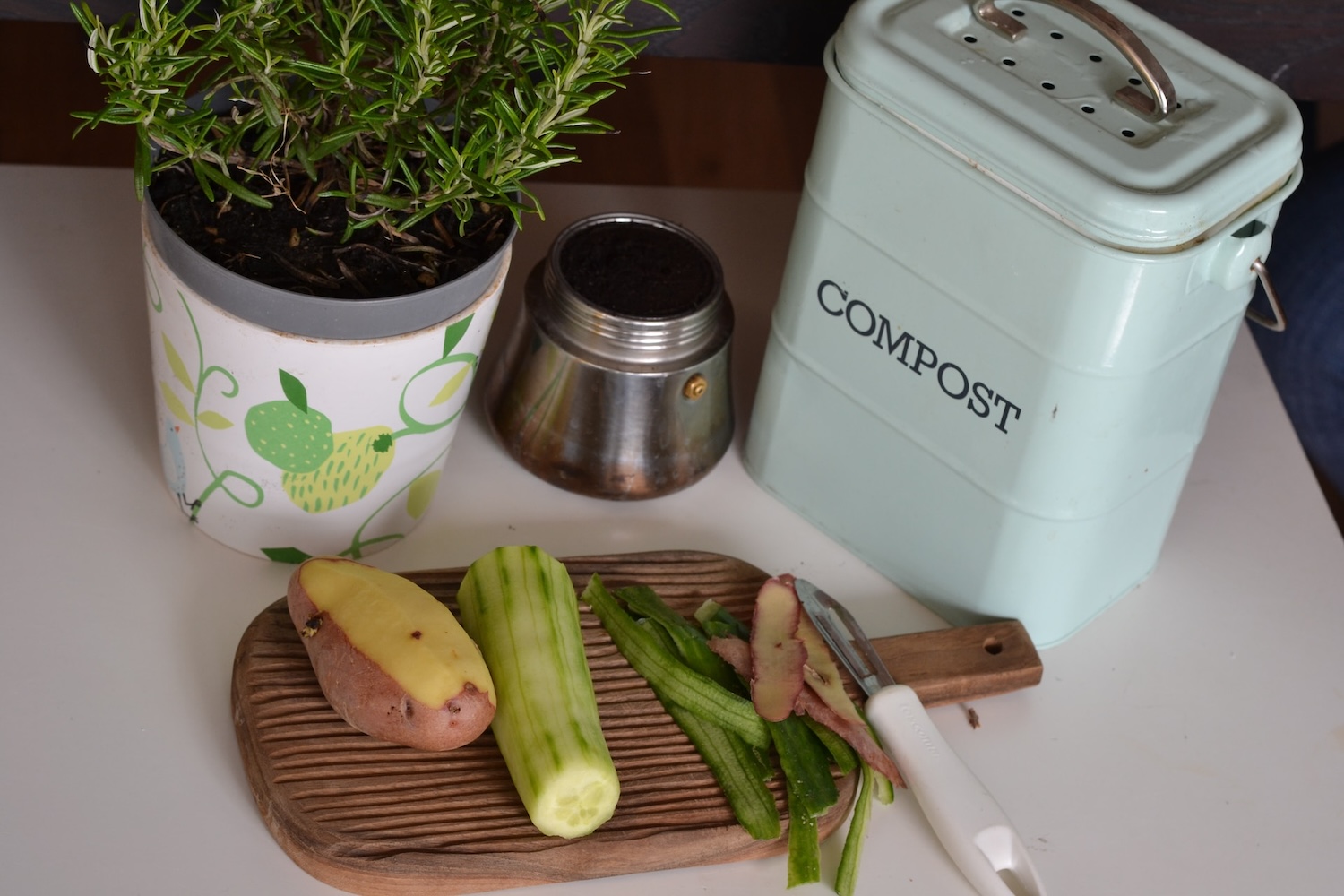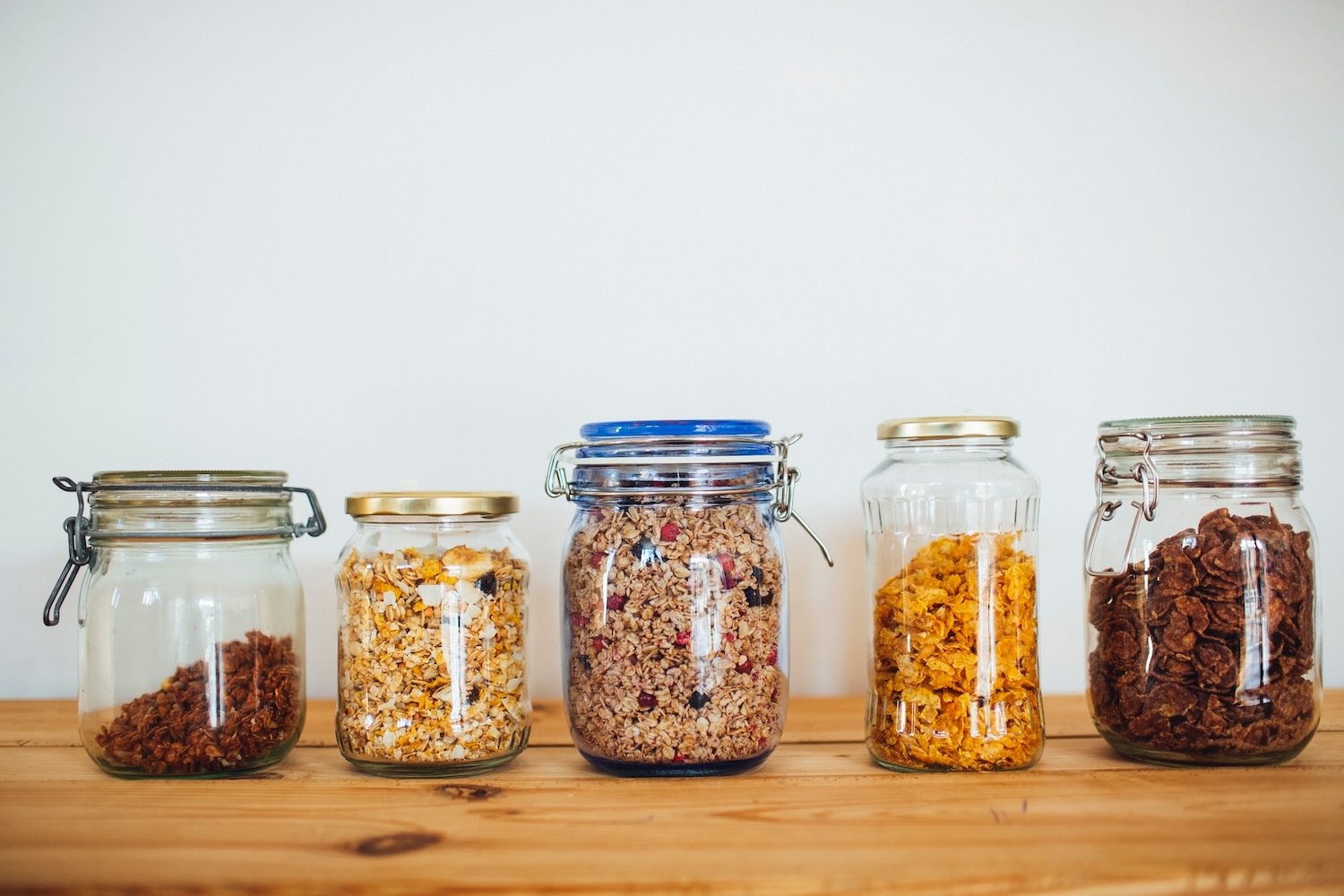
(Image: lucid_dream/Adobe Stock)
We know the whole "new year, new you" thing gets tiring pretty quickly. What's wrong with the old you, anyway? And why does the passing of the calendar suddenly mean adding a host of new seemingly unattainable action items to your already crowded to-do list? For the record, it doesn't. But we do feel using this time for some low-pressure reflection and goal-setting can be valuable. If adopting some more sustainable habits is on your list of aspirations for 2024, this realistic and evidence-based guide can help you do that.
Of course, what you commit to will vary based on things like your budget, how much free time you have, and the resources available to you locally. For starters, try choosing one thing from each bucket that feels accessible to you right now. If it's small, that's okay. Maybe you'll have the bandwidth to revisit in a few months, maybe you won't. But the small steps you take are still progress, and although it may not always feel that way, every little bit helps. Read on for some ideas for cutting your footprint with some low-lift sustainable habits, along with the action items our editorial team is committing to this year.

Transportation
The transportation sector accounts for nearly 30 percent of emissions in the U.S. and almost 15 percent globally. But we don't need to go back to the horse-drawn buggy to take meaningful action. Even seemingly simple shifts toward more sustainable habits can do a lot to cut our personal footprints down to size. Here are two areas to consider.
Alternative transport. This could be walking, biking or using public transportation more often if it's available to you, choosing a train rather than an airplane for shorter interstate trips, carpooling more often, or planning errands using a multi-stop trip on an app like Google Maps to optimize for fewest miles traveled. Small choices here and there may not seem like much, but if every American drove just 10 percent less, we'd avoid 110 million metric tons of carbon dioxide emissions annually — equivalent to shutting down 28 coal-fired power plants.
Climate-smart choices. When you have to drive or fly, you still have choices. For starters, proper car maintenance comes with loads of emissions-busting benefits. Having your car serviced regularly, filling it with the right fluids, and keeping your tires inflated to the proper pressure all improve fuel economy. So does observing the speed limit and avoiding heavy braking or acceleration, which is also better for your car in the long run.
For further distances, train travel produces fewer emissions for trips under 700 miles, but air travel actually comes with a lower footprint on longer trips if the alternative is a diesel-powered (rather than electric) train, according to a 2020 analysis. Train travel can actually be super relaxing — ticketing and boarding is generally much easier at train stations than airports, and train seats are way more comfortable. Particularly if you travel often for business, consider speaking with your employer about shifting to train travel where it's available.
- What we're committing to: Open up to new means of transport. Like many city residents, I have the luxury of being able to complete most of my daily errands on my own two feet. But on lazy days, I'm certainly guilty of choosing a ride-share like Uber or Lyft rather than waiting at the bus stop. Along with choosing the bus, train and carpool function on ride-share apps more frequently, I'm resolved to try out more innovative models like microtransit this year. While not available in my city, I'm hoping to make microtransit solutions my go-to for travel on business trips in where it's available in 2024 — and I'm excited to share my experience with you in future coverage for 3p.

Food
Data suggests food makes up 10 percent to 30 percent of the average household's carbon footprint. A host of things contribute to this — including the type of food you choose, how and where it was produced, how it's transported, the way it's packaged, and the waste it produces at end of life. Here are a two general areas to consider in the realm of sustainable habits for 2024.
Diet. If half of the global population ate a more "plant-rich" diet — specifically limiting red meat to 57 grams per day, which amounts to a burger or steak a couple times a week — we'd avoid 78.3 gigatons of carbon equivalent emissions by 2050, according to estimates from the nonprofit Project Drawdown. That's nearly a fifth of the cuts necessary to limit global temperature rise to 1.5 degrees Celsius above pre-industrial levels, which scientists deem a crucial tipping point in the fight against climate change.
"Meatless Mondays," or committing to a plant-based diet once per week, is one way many look to move their diets in this direction. But more than a hard-and-fast rule based on days of the week — which you can easily fall off track from, leaving you feeling disillusioned and more prone to a "just forget it" mindset — we'd recommend trying out a few new plant-based recipes every month. Once you get a sense of what you like, making plant-based a more regular part of your recipe repertoire will feel more enjoyable and not like a chore.
Food waste. Food waste accounts for around half of all emissions associated with the global food system, according to a 2023 study published in the peer-reviewed journal Nature Food. If you have the space, guides like this one from the U.S. Environmental Protection Agency can help you set up a home compost pile that breaks down organic waste without producing emissions. You could also look to build a space-saving compost tumbler using a guide like this, or purchase one for less than $200. And, of course, if you have local organic waste pickup available in your community, this is also a great option to take advantage of.
That being said, organic waste pickup is far from the norm in the U.S. right now, and those living in densely populated areas often have few options for backyard composting. If you can't compost, generally your best bet is to limit food waste at the source. Getting creative with your leftovers, using apps or lists to track what's in your fridge, or making a few smaller weekly trips to the grocery store rather than one large haul can all help to reduce the amount of food waste you send to the bin.
- What we're committing to: Save vegetable scraps for broths and other uses. I play around in the kitchen a ton, and I've always meant to do this but never seemed to get the habit started. As a kid growing up rurally, we had a backyard compost pile, something I've never had since living in the city. I finally gave this a try during holiday cooking and was honestly shocked by how quickly a freezer bag filled up with vegetable scraps ready for use.

Water and energy
The average American household uses around 30 kilowatt-hours of energy and around 300 gallons of water every day. While of course these utilities are essential for modern life, it's easy for us to become lax and use more than what we need — making this an area ripe for sustainable habits to pare that down.
Put larger appliances on a power strip. "Vampire power" refers to the energy devices like televisions, computers and kitchen appliances use when they are powered off but still plugged into an outlet. These devices continue to consume energy so they can be flipped on at a moment's notice, but this idle power use can make up 10 percent to 25 percent of household energy use, depending on the estimate. Plugging these devices into a power strip and flipping it off when not in use saves both money and energy.
Shut off that tap. With cold and flu season upon us, we're all (hopefully) washing our hands much more, and the pandemic taught us well to sing "happy birthday" or otherwise make sure we're putting adequate time into the job. But remember to shut off the tap before you do it to avoid wasting water and flip it back on using the back of your wrist or an elbow. Brushing teeth, scrubbing dishes and shaving are just a few other instances where we can absent-mindedly leave the tap running — and just a minutes can waste over a gallon of water.
- What we're committing to: Be more mindful on a daily basis. You guys, I have a confession. I often catch myself slacking on basic things like turning off lights and appliances before I leave the room, and before I know it I have the whole apartment lit, with fans and a muted TV on with no one watching. My power bills aren't crazy, but I'm still wasting energy I don't need. It's easy to get busy and forget about it, but I can seriously do better and have made this a priority for 2024.

Waste
The average American produces nearly 5 pounds of trash per day. While most of us aren't in a position to reduce our waste figure down to zero, a few hours of time and a couple newly formed sustainable habits can make a surprising dent. Consider one or both of these two steps.
Take an inventory. Spend a few weeks observing what you throw in the trash and recycling bins, keeping track of what you see in a notepad or note app on your phone. Once you understand what you're throwing away, make sure you're disposing of it properly by searching your town's name and "accepted items for recycling." Are you trashing things that are accepted for recycling, or are you throwing things in the recycling bin that shouldn't be there? Non-accepted items can contaminate your local recycling stream, so as tough as it is, it's better to throw them out.
Consider replacements. Think about the items that seem to generate the most waste in your home, either from your best guess or based on your inventory. Then make a short list of things you could either go without or swap for an alternative that comes with reusable packaging, packaging that is more recyclable for you locally, or less packaging overall. We'd recommend against making a ton of swaps at once, as this can breed an all-or-nothing mindset that's tougher to stick with long-term. Instead, choose an item or two per month and build from there.
- What we're committing to: Making staples from scratch. I'm looking forward to trading more packaged items for homemade staples this year. Trading packaged tortillas, which are tasteless if we're honest, for a homemade alternative that comes together in less than 30 minutes is one of my favorite trades recently. If cooking isn't something you're familiar with or particularly enjoy, consider starting with something simple: A homemade vinaigrette dressing, for example, can be prepared in less than five minutes in a single jar using ingredients you likely already have in your pantry, and it's much tastier, healthier and cheaper than the pre-bottled stuff.

Money
In many cases, there's only so much you can do about how your money is managed. But when you have a choice, strive to make it, and plan some time to do so throughout the year. An hour per week, or even an hour per month, spent on conscious decision-making could have a massive impact on the carbon footprint of your money. Here are a some general areas of sustainable habits to consider.
Ditch your big bank for a credit union or CDFI. All financial institutions use money from their customers' savings accounts — along with the fees they collect — to make investments and grow their bottom lines. Big banks invest in the sectors that are most likely to turn a profit, including more than $3.2 trillion invested in oil and gas expansion since 2016. On the other hand, credit unions and community financial development institutions (CDFIs) invest locally in projects that create jobs, boost small businesses, and make more housing and infrastructure available in your community.
If you're working to pay off some credit card debt, many credit unions and CDFIs also offer personal loans or balance transfer cards that are interest-free for a certain period (usually six to 18 months). This can help you save money and pay down your debt faster while not sending interest fees to large financial providers that pour billions per year into fossil fuels.
Move your investments into a sustainable fund. Saving for retirement, at the level we're able, is one of the best things we can do to ensure our long-term financial health, but many investment funds also include the fossil fuel sector and other extractive industries. Resources like this mutual and exchange-traded fund rating system from the shareholder advocacy organization As You Sow can help you find funds that have less impact on climate change. If your employer offers you a few options for your 401(k) investments, give it a search and choose the lowest-impact plan with a return that's comfortable to you. Or if you chose your retirement plan yourself, consider switching to a lower-impact option with similar returns.
- What we're committing to: Vote my proxies. If you invest, you also have the right to vote on key issues at the companies in your portfolio. This is known as proxy voting, and historically it was far more available to people who owned individual stocks than those who invested in the funds typically used for retirement savings. But this is beginning to change with a new option called pass-through voting. In writing this guide about sustainable investing last year, I was surprised to learn that the fund provider I use through my 401(k) plan offers pass-through voting options, and I'm excited to look into this further come proxy season this summer. If you're interested in doing the same, try searching your fund's name and "pass-through voting" to see what coms up, and check out or guide to learn more.
Why sustainable habits matter
"Why adopt sustainable habits for the sake of the environment? Just 100 companies produce over 70 percent of global emissions. What you do won't matter anyway." This is a common notion floating around the internet, but it's misleading for several reasons. For starters, that 70 percent figure was debunked. And while it's absolutely true that large actors like corporations account for the lion's share of global emissions and environmental impact, much of the impact they create comes from developing and selling products to everyday people like you and me.
If we shift our behavior, change our buying patterns and adopt more sustainable habits, products that are wasteful or come with a higher environmental footprint will no longer be as profitable for companies to sell — compelling them to change their behavior along with us.
This plus the compelling evidence about the potential of our collective action, as detailed here, make a clear case for doing what we can to adopt more sustainable habits — and telling our friends and family what we've learned, that it doesn't have to be as hard or expensive as it seems, and that yes it does make a difference.
We look forward to giving some of these sustainable habits a try in 2024. We'll report back on our experience, and we'd love for you to do the same. If you plan to try out some new sustainable habits this year, tell us about it here — and here's to small shifts for big changes in the New Year!
(Homepage image placement: Summit Art Creations/Adobe Stock)

Mary has reported on sustainability and social impact for over a decade and now serves as executive editor of TriplePundit. She is also the general manager of TriplePundit's Brand Studio, which has worked with dozens of organizations on sustainability storytelling, and VP of content for TriplePundit's parent company 3BL.














